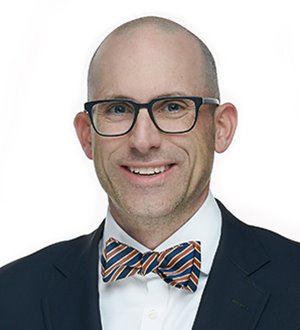St. Louis City and County Stay at Home Orders Extended Indefinitely - Will be Reevaluated in Mid-May
In an effort to battle the COVID-19 pandemic, St. Louis County Executive Dr. Sam Page has announced that as of 12:01 a.m. on Monday, March 23, 2020, all non-essential businesses in St. Louis County, Missouri will be required to close. The order originally directed closure through 11:59 p.m. on April 22, 2020, but closure has now been extended indefinitely and will be reevaluated in mid-May . St. Louis City Mayor Lyda Krewson also announced a similar order that took effect 6:00 p.m. on March 23, 2020. Like the County order, it originally directed closure through April 22, 2020, but closure has now been extended indefinitely and will be reevaluated in mid-May. These restrictions follow the earlier restrictions limiting gatherings to no more than 10 people.
With the Executive Orders, all other non-essential businesses are required to close, including fitness centers/gyms, shopping malls, casinos, museums, zoos, aquariums, play centers, bowling alleys, movie theaters, concert and music halls, country clubs, and social clubs. Most Missouri (state and federal) courts are closed to public access, but electronic filing is still available.
What activities are allowed?
Importantly, individuals will still be allowed to leave their homes to seek essential services (grocery shopping, medical treatment, etc.), travel to places of employment that have been deemed “essential,” go for walks and runs and generally recreate (keeping social distancing requirements in place), care for others, and drive on all Missouri roads (including highways and tollways).
What is an “essential” business in St. Louis County and St. Louis City?
Businesses deemed to be “essential” and allowed to remain open are extensive, and below is a non-exhaustive list:
- Healthcare operations (hospitals, clinics, doctors, physicians, nurses, dentists, mental health professionals, occupational and physical therapists, etc.), pharmacies, veterinarians, healthcare suppliers, etc.;
- Grocery stores, farmers’ markets, farm stands, produce stands, supermarkets, food banks, food pantries, convenience stores (including businesses that ship or deliver groceries, beverages, goods, or services to residences or other essential businesses);
- Businesses that engage in food cultivation, including farming, livestock, and fishing;
- businesses that engage in food production, manufacturing, processing, packaging, wholesaling, storage, warehousing, or distribution;
- Businesses that provide food, shelter, social services, or other necessities of life for economically disadvantaged or people otherwise in need of social services (including but not limited to individuals with physical, intellectual, or developmental disabilities);
- News media (newspapers, television, radio and other media services);
- Gas stations and businesses needed for transportation, including auto-supply, auto-repair and related facilities;
- Banks/financial institutions;
- Hardware and supply stores;
- Inns, hotels, motels, and bed and breakfast establishments;
- Businesses that perform construction services;
- Businesses providing mailing and shipping services, including post office boxes;
- Laundromats, dry cleaners, and laundry service providers;
- Restaurants and facilities that prepare food (for consumption off-site);
- Airlines, taxis and other private transportation providers (including agencies providing public transportation);
- Home-based care and services for seniors, adults, and children;
- Residential facilities and shelters for seniors, adults, and children;
- Professional services, such as legal services and accounting services, with additional requirements;
- Businesses or independent providers that provide childcare or other dependent services but only to the extent that they provide services to people who are necessary employees of Essential Businesses (with limitations);
- "Essential Government Functions" means all services needed to ensure the continuing operation of federal, state, or local government departments, offices, agencies, officials, political subdivisions, entities created by intergovernmental agreement, essential court functions as determined by the Presiding Judge or the Presiding Judge's designee, and any other government functions necessary to provide for the health, safety, and welfare of the public;
- "Essential Infrastructure" means operation and maintenance of utilities, power generation, electric and gas transmission and distribution facilities, water, wastewater, public works, construction (in particular, without exclusion, skilled trades, construction of affordable housing, construction for housing for individuals experiencing homelessness, and related construction firms and professionals), airport operations (including, without exclusion, airport concessions and airport parking).
The St. Louis County Order includes additional businesses deemed to be “essential”:
- Businesses and agencies that provide and help to determine eligibility for basic needs including food, cash assistance, medical coverage, childcare, vocational services, or rehabilitation services;
- Adoption agencies;
- Critical labor union functions;
- Defense and national security-related operations supporting the federal government or a contractor to the federal government;
- Businesses that provide emergency repair and safety services for Essential Infrastructure;
- Businesses that supply products needed for people to work from home;
- Businesses that supply Essential Businesses with the support or supplies necessary to operate, including, but not limited to, maintenance, security, janitorial, and other similar services;
- Organizations that provide charitable and social services;
- Businesses that provide supplies for “Essential Businesses and Operations”;
- Funeral services;
- Churches, religious services, and other spiritual practices but only to the extent consistent with reasonable compliance with Social Distancing Requirements and gathering size limitations;
- Educational institutions for purposes of facilitating distance learning (provided that social distancing requirements are met);
- Plumbers, electricians, exterminators, and other service providers who provide services that are necessary to maintaining the safety, sanitation, communication, and essential operations of Residences, Healthcare Operations, Essential Infrastructure, Essential Government Services, Essential Activities, or other Essential Businesses;
- Trash collection and disposal.
If you have any questions regarding this Alert, please contact the authors, Corey Franklin, cfranklin@fordharrison.com, and Karen Milner, kmilner@fordharrison.com, both attorneys in our St. Louis office. Of course, you may always contact the FordHarrison attorney with whom you usually work.
FordHarrison is closely monitoring the spread of Coronavirus and has implemented continuity plans, including the ability to work remotely in a technologically secure environment when necessary, to ensure continuity of our operations and uninterrupted service to our clients. We are following all CDC guidelines and state and local laws as applicable. We are committed to ensuring the health and welfare of our clients, employees, and communities while continuing to provide our clients with the highest quality service. Please see our dedicated Coronavirus Taskforce page for the latest FH Legal Alerts and webinars on Coronavirus, as well as links to governmental and industry-specific resources for employers to obtain additional information and guidance. For more information or to be connected with a Coronavirus Taskforce attorney, please contact clientservice@fordharrison.com.



















